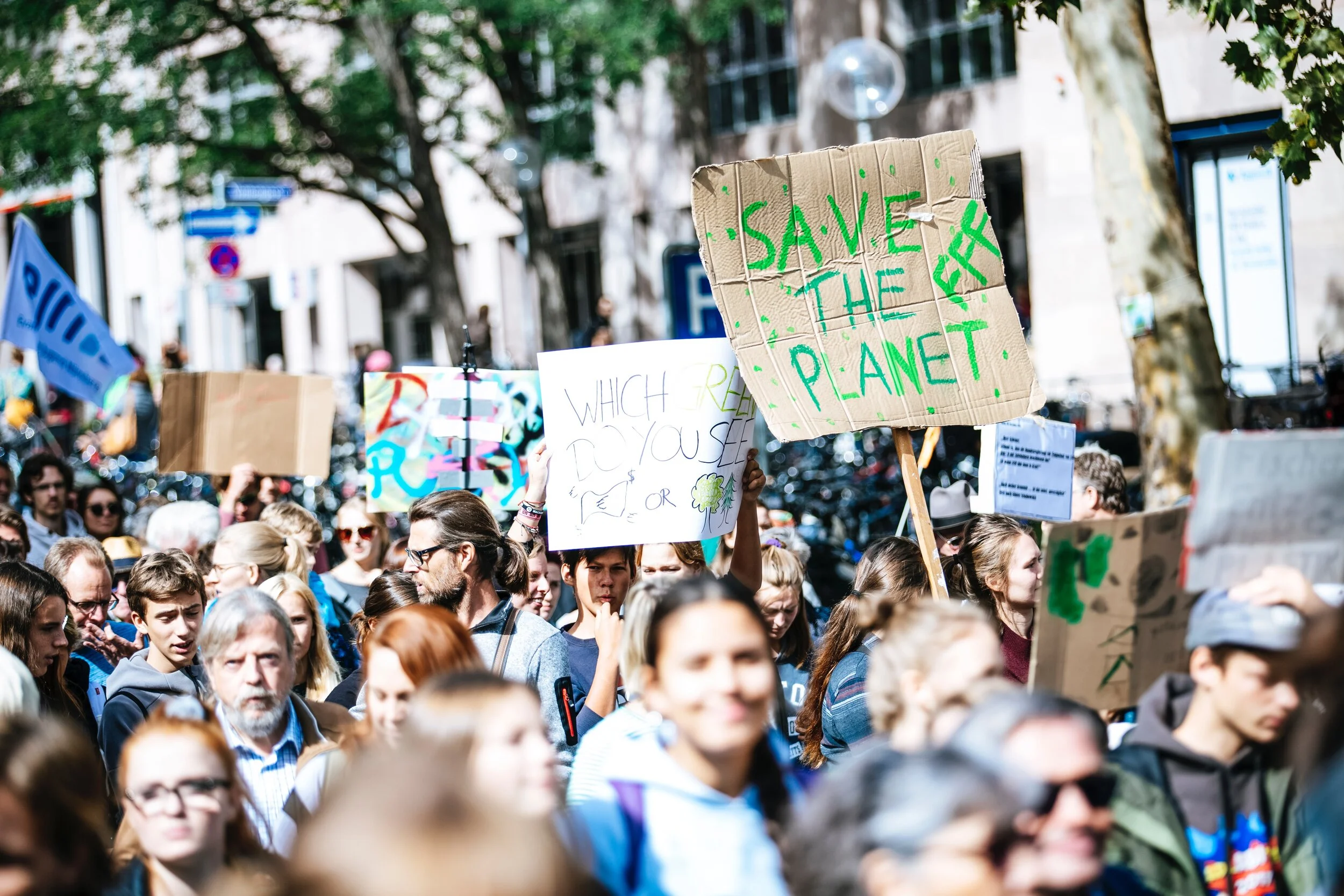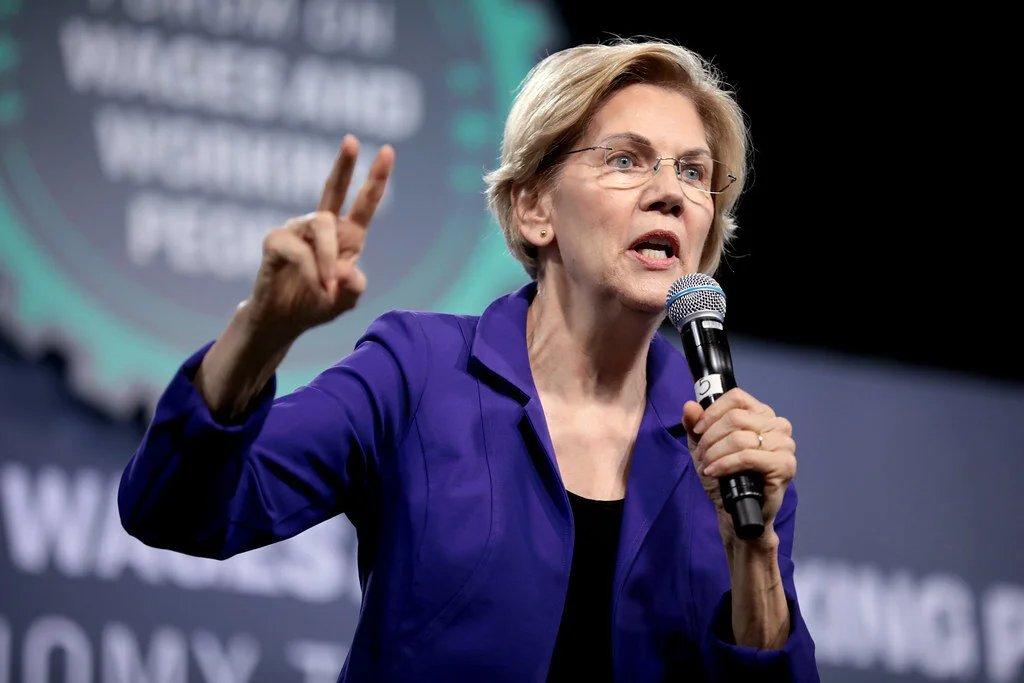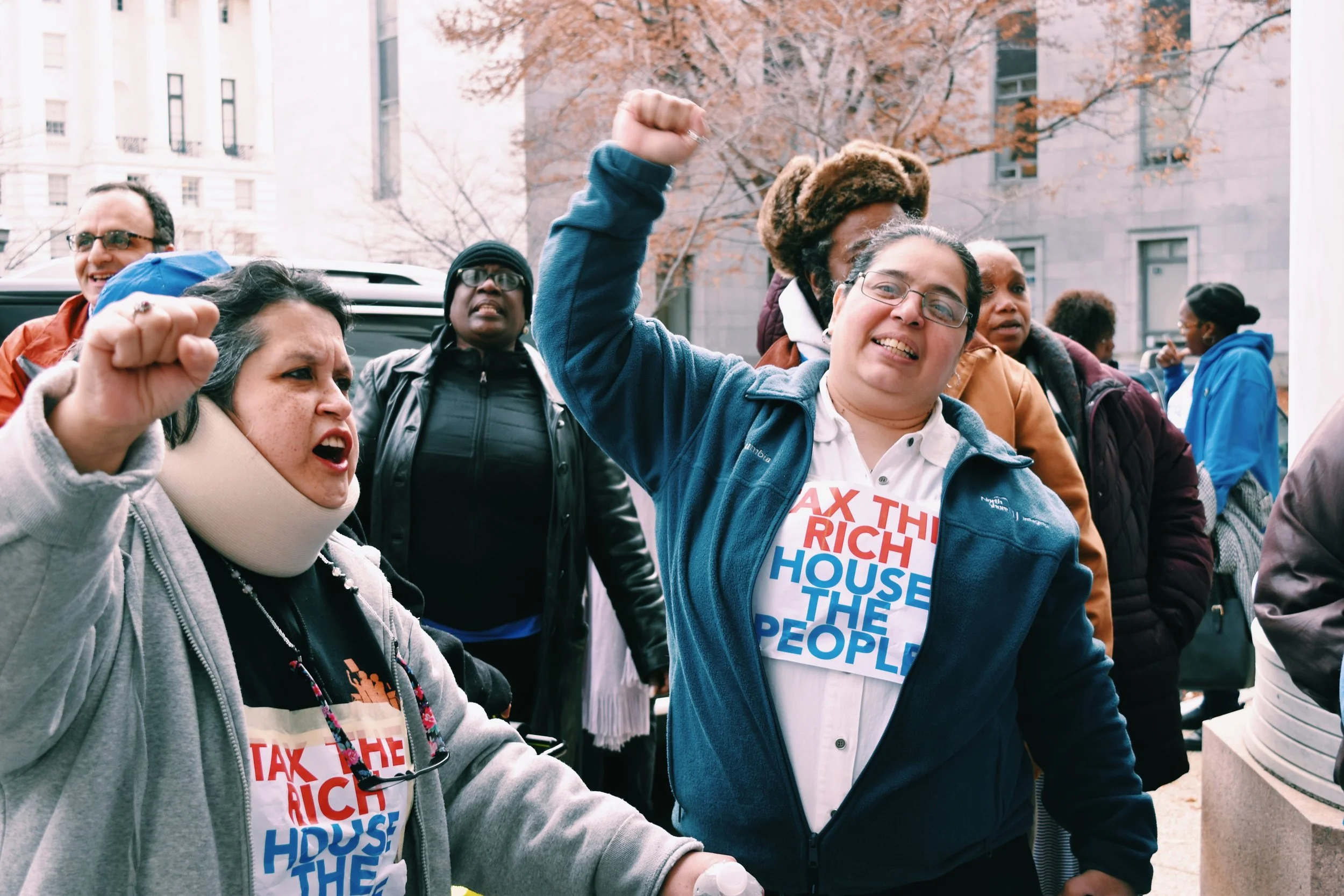That week, Senator Jeff Merkley of Oregon introduced a wide-ranging bill called the 100 by ‘50 Act, a sort of proto-Green New Deal that would move the United States to 100% clean energy by 2050.
Read MoreWhile the climate movement tries to reduce spills and cool the earth, pundits spill oceans of ink and expel clouds of hot air on how progressives should be marketing saving the earth. As Data for Progress has reported elsewhere, policies like the Green New Deal have remained popular despite years of sustained attacks by Republicans.
Read MoreRecently, Data for Progress polled several policies that funded new clean manufacturing technology to provide new opportunities for communities historically affected by pollution and ecological damage --particularly low-income communities and communities of color. We polled a version of this policy that would include a large expenditure of federal revenue -- two trillion dollars.
Read MoreToday, Senator Elizabeth Warren of Massachusetts released a plan recognizing the imperative to restore marine habitats, expand ocean-based jobs and protect coastal communities through a Blue New Deal. We must admit: we are biased. At least some of the impetus for the plan came from a question posed to the Senator by Bren Smith, an ocean farmer and co-author of a Data for Progress brief on Seafood, Blue Jobs and the Green New Deal, at the CNN town hall on the climate crisis in September. Dr. Ayana Elizabeth Johnson, a co-author of the same brief and noted ocean policy expert, also advised the Warren campaign on this plan. It’s exciting to see our friends doing big things.
But the real need for the plan is, of course, the climate crisis. Oceans are one of our greatest resources and wonders. They have absorbed around 30 percent of carbon dioxide emissions to date and as much as 90 percent of warming. Each new study seems to deliver fresh, devastating data on the state of our seas. Coastal communities are home to about 40 percent of United States residents. And in 2016, commercial and recreational saltwater fishing generated more than $212 billion in sales and contributed $100 billion to the country’s gross domestic product.
Read MoreI’m a native of Nashville, Tennessee. I’ve been a subscriber to the Tennessee Valley Authority’s Green Power Switch since not long after its launch in 2000. For almost twenty years, and for just $4/month, I’ve been raising my hand to demand cleaner energy.
Then last year, I raised my hand a little higher, spending $200 to become one of the first subscribers to a panel from a first-of-its-kind community solar project, developed by the Nashville Electric Service. Over time, this investment in a cleaner future will pay back its initial investment via rebates.
In Nashville, I spent over three years without a car, and the first I ever owned ran on biodiesel. In 2012, I moved on to the fully electric Nissan Leaf. And though my hometown may not have many green buildings in the single-family market, my family was lucky enough to find one with a tankless water heater and great insulation. As we settle into our home, we're also working to make it even more energy efficient, upgrading most of light bulbs to LED, among other improvements.
Read MoreToday, Elizabeth Warren released her plan to center justice in the fight against climate change. The platform, one of the longest and most thorough drafted in a policy-heavy campaign, builds on decades of organizing by Indigenous nations and communities of color. In the plan, the Senator commits to uphold the Principles of Environmental Justice drafted at the 1991 National People of Color Environmental Leadership Summit—a touchstone document in the long fight against environmental racism. The plan would deepen and expand commitments made by the Clinton and Obama administrations to address environmental injustice in the day-to-day work of federal agencies. And, as part of Warren’s broad anti-corruption themed campaign, the plan takes aim at the fossil fuel corporations that have put elected officials on the dole and polluted the climate and our politics by sewing doubt about the scientific truth of global warming. The plan also shows the Senator’s commitment to advancing justice for working families and communities of color—a key pillar of a Green New Deal.
The Warren plan signals a broader shift within the Democratic Party towards a new consensus wherein justice is considered a core tenet of climate and environmental policy. Centrist politicians, think tanks and green groups have, for far too long, pushed an ideology of carbon supremacy—the notion that pollution and emissions should be isolated from broader questions of jobs, infrastructure, civil rights, Indigenous rights and justice. In February, the Washington Post editorial board said that serious policymakers should not “muddle” decarbonization with social programs that “divert money and attention from the primary mission.” And in a widely circulated 11,000-word “Open Letter to Green New Dealers,” Jerry Taylor, the President of the Reaganite Niskanen Center, was incredulous. “The climate is too important to be held hostage to political commitments,” he wrote. To test these rote hypotheses, Data for Progress polled key pieces of the Warren campaign’s environmental justice plan. As it turns out, voters support justice-oriented climate action.t
Read MoreA Green New Deal for Housing would combine targeted green investment in frontline communities and affordable housing with a renewed commitment to affordable housing. Data for Progress has already shown how much support there is for much of the Green New Deal agenda.
Here, we focus on housing tie-ins.
On September 5, People’s Action’s #HomesGuarantee campaign released a Briefing Book that details an incredibly bold housing justice agenda. This agenda was informed and finalized through intense consultations between grassroots leaders, housing organizers, and a team of progressive policy thinkers, coming from all around the country (full disclosure, I was on the Policy Team). If a Green New Deal for Housing is looking for housing agenda to connect to, the Homes Guarantee campaign is the leading candidate.
Read MoreIn late August,, Bernie Sanders’ proposal for a Green New Deal heavily featured his plans to take on the fossil fuel industry. He joins a growing number of 2020 presidential contenders who are proposing to phase out coal, oil, and gas production and to put workers and communities first in a transition to a new economy.
Of the 18 major Democrats remaining in the race, sixteen have taken the No Fossil Fuel Money Pledge to reject campaign contributions above $200 from fossil fuel company executives, PACs, and lobbyists; thirteen support ending new fossil fuel leasing on public lands; and twelve support eliminating all fossil fuel production subsidies and tax giveaways.
Read MoreIn New York City, the top source of climate pollution is the energy use of big buildings. To combat this, the city recently enacted a transformative law requiring buildings to slash emissions 40 percent by 2030 and over 80 percent by 2050. Meeting these requirements will involve upgrading buildings to high energy efficiency, which, in practice, can require everything from switching to LED lights and better insulation to temperature sensors and controls tied to better HVAC systems.
The new law covers the city’s 50,000 largest buildings—those over 25,000 square feet. Starting in 2024, these buildings will need to get below pollution-per-square-foot limits tailored to specific types of buildings. These pollution limits will ratchet down in 2030, requiring more pollution cuts, and then again in later years. By 2050, the law will achieve 80 percent pollution reductions through energy efficiency (in combination with a greening electric grid).
Read MoreLast week, Bernie Sanders’ proposal for a Green New Deal heavily featured his plans to take on the fossil fuel industry. He joins a growing number of 2020 presidential contenders who are proposing to phase out coal, oil, and gas production and to put workers and communities first in a transition to a new economy.
Of the 18 major Democrats remaining in the race, sixteen have taken the No Fossil Fuel Money Pledge to reject campaign contributions above $200 from fossil fuel company executives, PACs, and lobbyists; thirteen support ending new fossil fuel leasing on public lands; and twelve support eliminating all fossil fuel production subsidies and tax giveaways.
Read MoreIt is time to face an urgent crisis with the spirit of public service that is deeply embedded in our American tradition. That is why today I am calling for creation of a Community Conservation and Climate Corps that will help mobilize the American people to rise to the defining challenge of our time: defeating climate change.
America rose to the challenge of the Great Depression under President Franklin Delano Roosevelt, who created the Civilian Conservation Corps (CCC) in April 1933 that put Americans to work to “conserve our precious natural resources.” President Roosevelt correctly predicted that the CCC “will pay dividends to the present and future generations.” In proposing the creation of the Peace Corps, in 1960, President John F. Kennedy recognized that America held an “immense reservoir of such men and women – anxious to sacrifice their energies and time and toil to the cause of world peace and human progress.”
Read More










